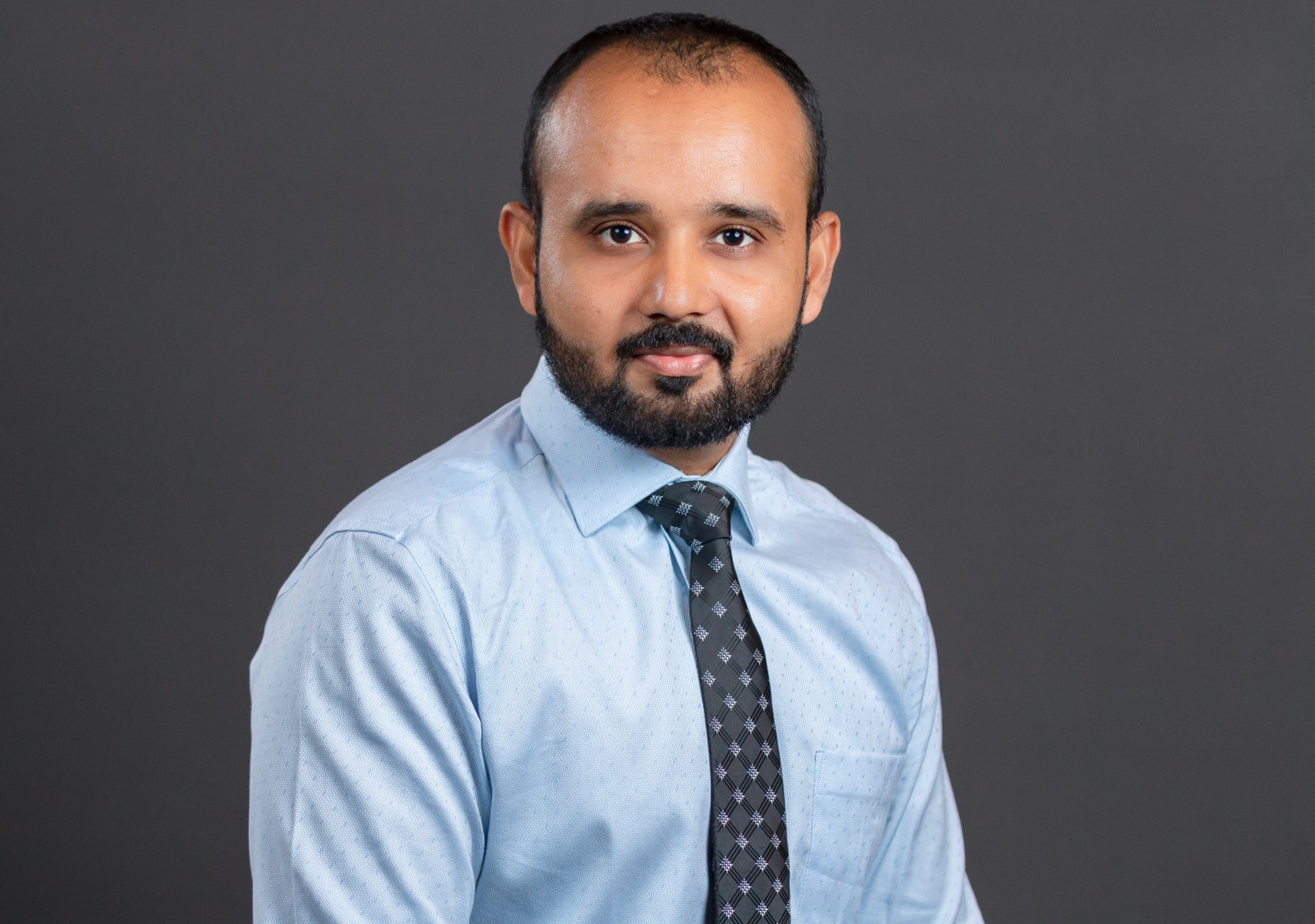Muhammadvaseem Shaikh – 2022/2023 DUNN with Cancer Brain Tumour Research Fellowship
 Muhammadvaseem Shaikh
Muhammadvaseem Shaikh
Postdoctoral Research Fellow at McMaster University, Hamilton, ON
Project Entitled: “Allogeneic, “off-the shelf” CD133 CAR-T immunotherapy for Glioblastoma”
Project Summary:
Glioblastoma (GBM) is the most common malignant brain tumor. Despite an aggressive therapy regimen, almost all patients relapse 7-9 months post-diagnosis. Therapy failure and poor patient outcome may be attributed to a small population of cells known as glioblastoma stem cells (GSCs), that escape therapy and seed disease recurrence. GSCs are most notably identified by the cell surface protein CD133, which has previously been shown to associate with pro-tumor properties including treatment resistance, tumor growth, maintenance, progression and metastasis.
Previously in the Singh Lab, we developed an engineered T-cell therapy, known as a CAR-T, that is capable of recognizing CD133 to induce tumour cell death. While this showed success in our animal models of human GBM, other considerations must be addressed on its path to clinical development. As of current, CAR-T therapies are generated from T-cells taken from cancer patients. This hosts a myriad of concerns including the quality of patient T-cells, the time and cost to manufacture, and its availability for patients with rapidly progressing disease. Hence, to circumvent this issue, we aim to develop and test the donor-derived CAR-T cells which are genetically engineered for safe usage in GBM patients as a readily available, “off-the-shelf” therapy.
Impact of Receiving Award:
I am deeply grateful and extremely honored to have received DUNN with Cancer Brain Tumour Research Fellowship Award, 2022-2024. This award will help fund my research at Dr. Sheila Singh’s lab in discovering newer therapies targeting glioblastoma.
Glioblastoma (GBM) is the most common malignant brain tumour. Despite an aggressive treatment regimen, almost all patients relapse at 7-9 months with a median survival of 14.6 months and a five-year survival of less than 5 percent. There is definitely a need to develop better therapies for GBM. Working at Singh lab provided me the exposure by working with GBM patients directly, and seeing their pain and bravery first-hand truly inspires and motivates me to work harder.
This award will help me to pursue my work of developing immunotherapies for GBM patients that would be available off-the-shelf, thereby reducing the time until treatment and also provide more potent treatment options. It would also help me to pursue my dream to work with world renowned scientists, cancer biologists and neurosurgeons. This award goes a long way in helping me grow in my career path and become a successful scientist. Finally, I would like to thank DUNN Family and Friends and Brain Tumour Foundation of Canada for helping me pursue my dream to make brain tumours treatable.
Midpoint Update – July 2023
“In our study, we focused on assessing the effectiveness of CAR-T cell therapy specifically for glioblastoma (GBM), an aggressive brain cancer. Through a direct comparison between patient-derived and healthy donor-derived CAR-T cells, we found that patient-derived cells exhibited lower preclinical efficacy, resulting in reduced tumor control and lower survival rates in treated mice. Further analysis revealed that patient-derived CAR-T cells showed higher exhaustion levels, which likely contributed to their diminished anti-tumor response. To overcome these challenges, we successfully developed and optimized off-the-shelf allogeneic CD133 CAR-T cells. In-vitro efficacy studies demonstrated that the allogeneic CAR-T cells showed equivalent efficacy to previously published autologous CAR-T cells. Additionally, the allogeneic CAR-T cells exhibited significant activation and cytokine release, indicating their specificity and immune response capability. Moving forward, we plan to investigate the underlying mechanisms behind the reduced efficacy of patient-derived CAR-T cells and evaluate the performance of allogeneic CAR-T cells in a relevant in-vivo model using multiple patient-derived GBM cell lines. Our study contributes to the understanding of CAR-T therapy in GBM and emphasizes the importance of developing allogeneic CAR-T cells to improve efficacy and accessibility for treating this aggressive brain tumor.”
Final Report – June 2025
Glioblastoma (GBM) is the most common and aggressive type of brain cancer in adults. It’s very hard to treat, and even with surgery, radiation and chemotherapy, survival rates remain low.
A promising treatment called CAR-T cell therapy, in which a patient’s immune cells are reprogrammed to identify and kill cancer cells, has shown effectiveness for certain blood cancers. But so far, it hasn’t been very effective for glioblastoma. One reason may be that glioblastoma is good at hiding from treatment. However, another important factor could be the patient’s own immune cells, which are often weakened or “tired” before treatment even begins.
In this study, we investigated the efficacy of CAR-T cells derived from the immune cells of patients with glioblastoma. We found that these cells already showed signs of being exhausted before treatment, and they didn’t fight the tumour very well in lab tests using a mouse model.
To improve this, we tested a new “off-the-shelf” approach using healthy donor immune cells. These donor cells were gene-edited to ensure they could be safely used in any patient. In our tests, these edited cells performed just as well as unedited healthy cells and were significantly more effective than those derived from glioblastoma patients.
These results suggest that using healthy donor cells may be a better option for CAR-T treatment in glioblastoma, potentially leading to more effective and widely available therapies in the future.